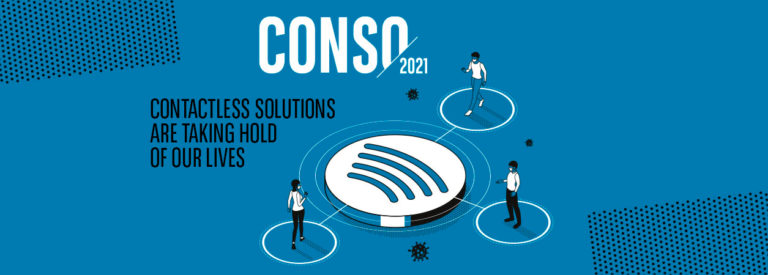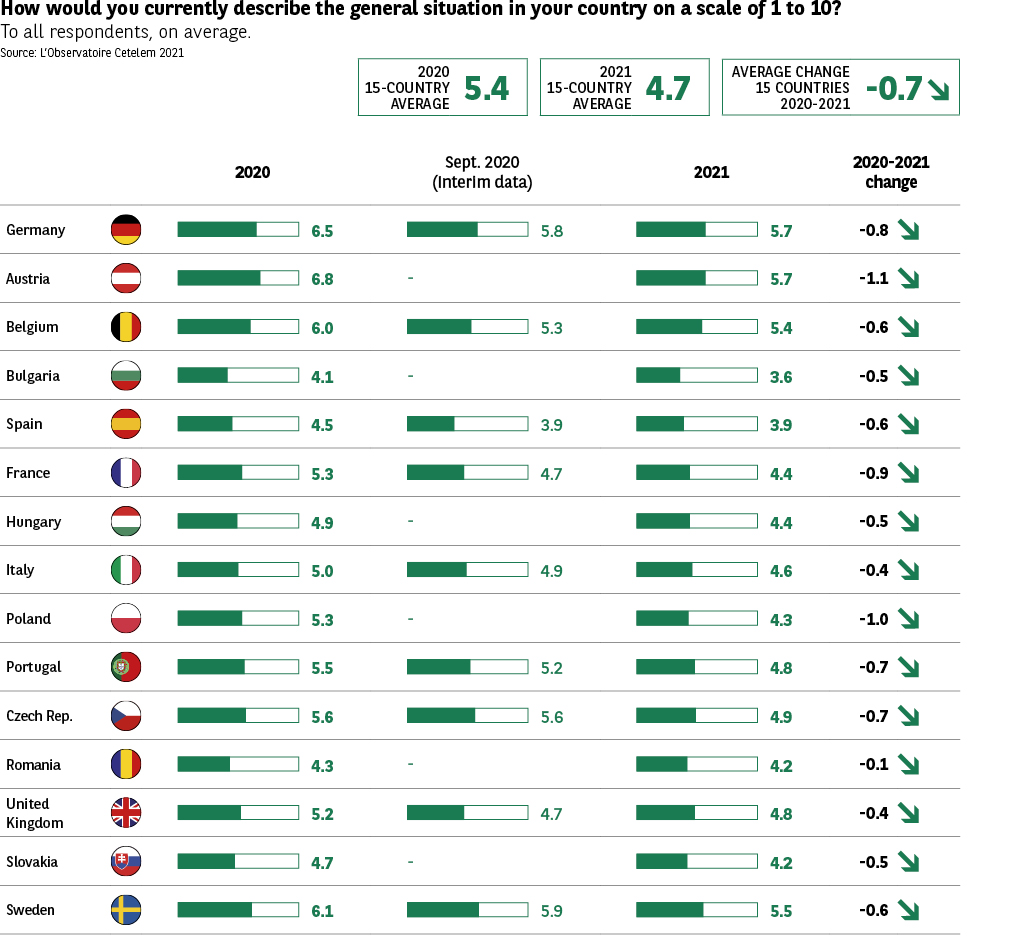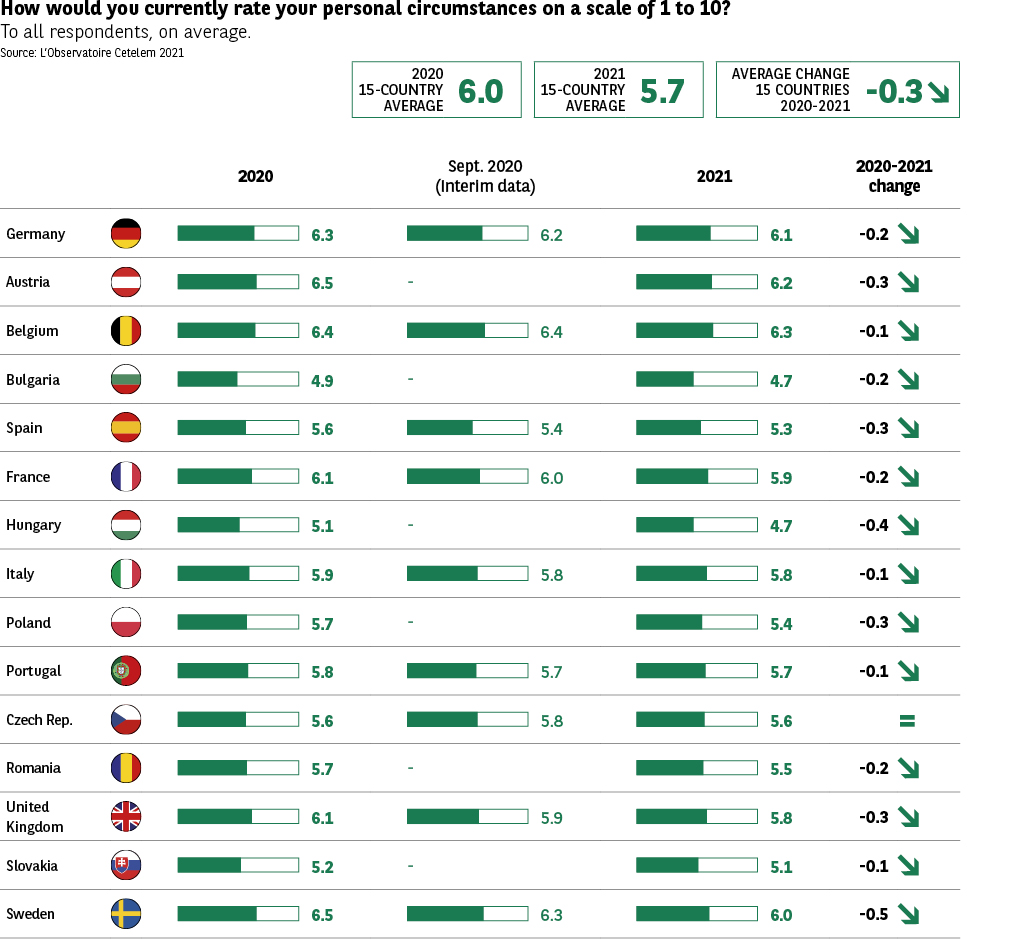A mood darkened by the Covid-19 crisis


In the 20+ years that the Observatoire Cetelem Barometer has been assessing the mood of Europeans, such a collapse has only been witnessed once before. After the economic turmoil triggered by the subprime crisis, which rocked the entire world, the Covid-19 pandemic has caused an equally damaging shockwave with countless consequences that are yet to be fully understood.
A worrying global situation
An initial interim survey of European consumers conducted in September 2020 in some of the countries of the Observatoire Cetelem Barometer, which gauged their perceptions of the situation in their country, pointed to a strong negative trend (Fig. 1 Barometer). This trend has been unequivocally confirmed by the final results of the survey, which was performed around the peak of the second wave of the pandemic. The average score stands at 4.7 pts, down 0.7 pts from 2020. Not since 2015 has the score been lower (4.6 pts).
Fig. 01 Barometer:
Download this infographic for your presentations
Every country has been hit by this decline to a greater or lesser extent. The biggest falls tend to have occurred in those nations that had previously posted the highest scores (-1.1 pts and -0.8 pts in Austria and Germany, the two most optimistic populations up until now). With -0.9 pts, France posts the third-highest drop and sees its score dip back below 5 out of 10.
However, because of the negative impact felt in all countries, these shifts have not turned the ranking on its head. The countries that displayed relative optimism in the past continue to do so, while the same is true of those that were relatively pessimistic.
Personal circumstances are viewed relatively positively
Meanwhile, in comparative terms, people’s perceptions of how their personal circumstances have changed have been less affected by the impact and consequences of Covid-19 (Fig. 2 Barometer). The average score of 5.7 out of 10 is just 0.3 pts down on that produced by the 2020 Observatoire. And this time around, the gaps between countries are much less significant. However, two nations stand out. The first is Sweden, which posts the largest fall (-0.5 pts) and drops from 1st to 4th place in the ranking. The second is the Czech Republic, whose score remains unchanged.
Fig. 02 Barometer:
Download this infographic for your presentations
This relatively positive opinion of personal circumstances is more striking than ever this year. It can probably be explained by the numerous and financially impactful measures taken by most governments to support households and save them from economic catastrophe. The outcome is that individuals are more upbeat about their personal circumstances.
